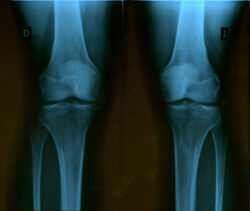Taxotere
In the challenging battle against cancer, Taxotere emerges as a potent weapon. Derived from the Pacific Yew tree, this chemotherapy drug is employed in treating various cancers, extending survival rates while curbing tumor growth. Despite its efficacy, it carries a high toxicity that may yield multiple side effects. This article provides a comprehensive exploration of Taxotere, its mechanism, applications, and implications, aiming to empower patients and their families in making informed health decisions.

Key Takeaways
- Taxotere is a chemotherapy drug used to treat various types of cancer including breast, lung, prostate, stomach, and head and neck cancers.
- Studies have shown that Taxotere can extend survival and prevent tumor spread.
- Taxotere is highly toxic and can cause a range of side effects.
- Taxotere works by stopping cancer cells from dividing, ultimately killing the cells.
Understanding the Role of Taxotere in Cancer Treatment
In our journey to comprehend the role of Taxotere in cancer treatment, we must first understand its mechanism of action and how it aids in controlling the growth and spread of cancer cells. Taxotere works by inhibiting cell division, a key feature of cancer cells, thereby reducing tumor size and extent. The effectiveness of this drug has been established through rigorous clinical trials, and its impact is further corroborated by numerous patient testimonials. These testimonials highlight the drug's significant role in improving the quality of life for cancer patients. Despite potential side effects, the overall effectiveness of Taxotere positions it as a crucial part of cancer treatment regimens, offering hope to patients battling various forms of cancer.
The Science Behind Taxotere
Taxotere's unique chemical structure and its mechanism of action, both contribute to its effectiveness in battling various forms of cancer. As a potent chemotherapy drug, Taxotere interferes with the growth of cancer cells, thus inhibiting their ability to multiply. This disruption of the cell division process is significant in halting the progression of cancer, illustrating the effectiveness of Taxotere in different cancer types, including breast, lung, and prostate cancers. Despite its efficacy, Taxotere's associated side effects have led to the exploration of potential alternatives in cancer treatment. These options aim to offer similar or enhanced therapeutic benefits, with potentially less toxicity. The ongoing research continues to push boundaries in the fight against this devastating disease.
Types of Cancer Treated With Taxotere
Several types of cancers, including but not limited to breast, lung, and prostate, are effectively treated with the chemotherapy drug Taxotere. This potent medication, while highly effective, also carries the potential to impact fertility. However, with modern medical advances, there are options for fertility preservation prior to initiating Taxotere treatment. The quality of life during treatment is a critical concern for both patients and clinicians. Fortunately, Taxotere's efficacy in controlling the disease often leads to improved quality of life. Despite side effects, many patients report a positive shift in their everyday life following treatment, as symptoms of cancer are alleviated. Taxotere is a powerful tool in the fight against cancer, offering hope to those diagnosed with these life-threatening diseases.
The Process of Administering Taxotere
While anyone undergoing chemotherapy must be prepared for potential side effects, the process of administering Taxotere involves a carefully coordinated procedure to ensure the drug's maximum effectiveness and patient safety. Administering Taxotere is typically done intravenously in a hospital or clinic, under the supervision of a healthcare professional. The dosage is determined based on the patient's health condition, body size, and type of cancer. An infusion can take up to one hour, and the entire process is repeated every three weeks. It's important to note that the effectiveness of Taxotere is enhanced when combined with other chemotherapy drugs. Regular blood tests are conducted to monitor the patient's response and adjust the treatment plan accordingly. This structured approach ensures a balanced management of treatment benefits and potential side effects.
Side Effects Associated With Taxotere
How often do patients experience side effects associated with the administration of Taxotere, and what are the most common ones reported? The frequency and severity of side effects vary among individuals, but they are fairly common. Based on patient testimonials, the most frequently reported immediate side effects include nausea, hair loss, fatigue, and changes in taste. However, the long term effects of Taxotere are also significant and can involve lingering fatigue, changes in skin and nail color, and peripheral neuropathy. While these side effects can be distressing, it is critical to remember that they are part of the body's response to the powerful medication and often subside after treatment ends. Patients are encouraged to discuss any concerns or discomforts with their healthcare provider.
The Risk-Benefit Analysis of Using Taxotere
Given that Taxotere can extend survival and prevent tumor spread, it is crucial to conduct a thorough risk-benefit analysis to understand whether its potential side effects outweigh its therapeutic advantages. The risks and benefits of Taxotere treatment are closely tied to the type and stage of cancer being treated. While Taxotere has shown significant effectiveness in controlling tumor growth, its use is associated with serious side effects such as neutropenia, neuropathy, and alopecia. These can significantly impact a patient's quality of life. Furthermore, the long-term effects of Taxotere chemotherapy include persistent fatigue, cognitive impairment, and potential cardiac damage. Therefore, the decision to use Taxotere should involve careful consideration of both its immediate benefits and long-term risks.
Patient Experiences With Taxotere
Even though Taxotere has been a lifeline for many patients battling various types of cancer, it is critical to delve into their personal experiences to truly comprehend the physical and emotional toll this treatment can impose. Patient testimonials paint a vivid picture of the real-world impact of Taxotere, illustrating the balance between the therapeutic benefits and the side effects. These firsthand accounts often highlight the struggle with debilitating side effects, even as the drug helps control their disease. The long term effects can vary greatly among patients, with some experiencing mild discomfort while others grapple with more severe health issues. These testimonials are an essential part of understanding the human aspect of Taxotere treatment and underscore the importance of comprehensive patient support.
The Development and Approval of Taxotere
The journey of Taxotere, from its initial development to its final approval, involved a complex process of scientific research, clinical trials, and stringent regulatory evaluations, embodying both the triumph of medical innovation and the challenges of drug development. The history of Taxotere development is marked by consistent efforts to perfect its formulation and establish its efficacy in treating various cancers. However, the controversy surrounding Taxotere approval stemmed from concerns about its severe side effects. Despite the controversy, it gained approval from regulatory bodies worldwide, acknowledging its potential benefits in oncology. It's a testament to the evolution of cancer treatments, balancing patient benefits against potential risks, an issue at the heart of any drug approval process.
Comparing Taxotere With Other Chemotherapy Drugs
In the realm of oncology, Taxotere and its performance as a potent chemotherapy drug can be compared with other drugs in the same category, and it is crucial to understand how they differ in terms of efficacy, side effects, and patient response. When comparing Taxotere efficacy with other chemotherapy drugs, studies indicate that it often shows superior results in controlling tumor growth and extending patient survival. However, it's often associated with severe side effects like neutropenia and peripheral neuropathy. Conversely, drugs like Paclitaxel may present fewer side effects but may not be as effective in certain cancers. Therefore, the decision between Taxotere vs. other chemotherapy drugs ultimately depends on individual patient factors, such as the type and stage of cancer, and the patient's overall health.
Financial Aspects of Taxotere Treatment
Navigating through the financial aspects of Taxotere treatment can often turn out to be a complex process for patients and their families due to the high costs associated with this potent chemotherapy drug. The financial implications of long-term Taxotere use can be burdensome, especially for those without sufficient insurance coverage. Prices vary widely depending on the dosage, frequency of treatment, and the location of the healthcare provider. It's crucial to discuss these costs with healthcare providers and insurance companies to understand the full financial responsibility. There are also programs and resources available to assist with these costs, including manufacturer's patient assistance programs and non-profit organizations that offer financial aid to cancer patients.
Tips for Managing Side Effects of Taxotere
Several patients experience side effects from Taxotere, yet there are numerous strategies that can be employed to manage these adverse reactions effectively. The primary step in managing side effects is to maintain an open dialogue with your healthcare team, informing them about any discomfort or changes you notice. They can adjust dosage or suggest coping strategies. Hydration, balanced diet, and adequate rest are crucial. Some patients may benefit from complementary therapies like acupuncture, massages, or yoga to manage fatigue and pain. Emotional health is equally important; consider joining support groups or seeking mental health counseling. Remember, each patient is unique, and what works for one may not work for another. Tailoring the management plan to individual needs is vital.
Exploring the Future of Taxotere in Cancer Treatment
Understanding the future role of Taxotere in cancer treatment involves examining ongoing research, advances in medical technology, and evolving patient care strategies. Future advancements may improve its efficacy while minimizing side effects. This could potentially be achieved through advanced drug delivery methods or combination therapies. As medical technology evolves, so does the possibility for alternative treatments. Personalized medicine, for instance, could allow for tailored treatment plans utilizing Taxotere, depending on an individual's genetic makeup. Moreover, the development of novel drugs might provide viable alternatives to Taxotere, broadening the range of options for patients. Despite its current efficacy, the future of Taxotere in cancer treatment depends on the progress of these crucial areas.
Real-life Case Studies Involving Taxotere
In this section, we will delve into a multitude of real-life case studies involving the application of Taxotere in cancer treatment to provide a broad perspective on its efficacy and side effects. A thorough case studies analysis highlights the long term effects of the drug, showcasing its potency in restricting cancer cell proliferation. However, it also underlines the significant side effects, such as fatigue, nausea, and hair loss. One prevalent study involved a cohort of breast cancer patients. Over a span of five years, the patients displayed a remarkable reduction in tumor size, but also experienced persistent alopecia. Such instances emphasize the need for a judicious approach in administering Taxotere, balancing its therapeutic benefits against potential adverse effects.
Latest Research and Updates on Taxotere
How have recent advancements and studies reshaped our understanding of the effects and applications of Taxotere in cancer treatment? The latest research findings have broadened our perspective on its potential uses and efficiencies. New studies are focusing on combining Taxotere with other drugs to enhance its effectiveness and reduce side effects. These emerging treatment options are proving beneficial for patients who are resistant to other treatments. Furthermore, advancements in genetic testing are being used to identify patients who may respond better to Taxotere, leading to a more personalized approach to cancer treatment. Despite the known side effects, continued research shows that Taxotere remains a critical component in the fight against various types of cancer.
Importance of Emotional Support During Taxotere Treatment
During the course of Taxotere treatment, the provision of emotional support emerges as a vital component for patients, helping them cope with the physical and psychological challenges associated with chemotherapy. The existence of support groups during Taxotere treatment can provide a platform for patients to share their experiences, fears, and expectations, thus creating a network of reassurance and understanding. These groups are often instrumental in helping patients maintain a positive outlook, despite the adverse effects of treatment. In addition to this, counseling services for Taxotere patients are also crucial. Professional counsellors can provide coping strategies and therapeutic techniques to manage stress and anxiety, thereby improving patients' overall quality of life during this challenging time.
Frequently Asked Questions
How Is Taxotere Made From the Pacific Yew Tree?
The Pacific Yew tree, a primary source for the chemotherapy drug Taxotere, is subject to conservation efforts due to its medicinal importance. The process of Pacific Yew harvesting involves extracting the bark, which contains the precious compound, paclitaxel. This compound is then semi-synthetically converted into its more potent form, Docetaxel, commercially known as Taxotere. This process respects Yew Tree conservation efforts by using sustainable and efficient extraction methods.
Is There Any Dietary Restriction or Lifestyle Change Necessary While Undergoing Taxotere Treatment?
Like adjusting the sails to withstand a storm, patients undergoing chemotherapy must modify their lifestyle and diet. Adapting to dietary restrictions and lifestyle changes is vital while undergoing treatment, specifically with drugs that have significant side effects, such as Taxotere. Patient experiences suggest a balanced diet, adequate hydration, and regular light exercise can help manage Taxotere side effects. However, it's crucial to discuss these changes with your healthcare provider for personalized advice.
Can Taxotere Be Used in Combination With Other Chemotherapy Drugs?
Yes, Taxotere can be used in combination with other chemotherapy drugs to enhance efficacy. However, this may increase the risk of experiencing side effects. It is important to note that over time, Taxotere resistance can develop, where the drug becomes less effective in treating the cancer. This potential for resistance necessitates careful monitoring by healthcare providers to optimize treatment outcomes. Always consult with your oncologist to understand the best therapeutic approach for your specific condition.
How Does Taxotere Affect Fertility in Men and Women?
Fertility preservation is a significant concern for many individuals undergoing cancer treatment. Management of side effects is crucial in these cases. Ironically, while some treatments aim to preserve life, they can adversely affect fertility. In both men and women, certain therapies may harm reproductive cells, leading to potential fertility issues. It's a delicate balance between combating the disease and maintaining the possibility of future parenthood, highlighting the importance of discussing fertility preservation strategies with healthcare providers.
What Happens if a Dose of Taxotere Is Missed or if an Overdose Occurs?
In the context of dose management, missing a dose of a medication may affect the overall treatment outcome. It's crucial to follow the prescribed schedule for optimal results. Conversely, overdosing can lead to severe adverse effects. Overdose symptoms usually magnify the drug's side effects, potentially causing critical health issues. In both scenarios, immediate contact with a healthcare professional is advised to assess the situation and provide appropriate guidance.
Conclusion
The role of Taxotere in cancer treatment is undeniably pivotal, despite its associated side effects. Its efficacy across various cancer types, backed by rigorous research, positions it as a crucial weapon in the fight against this formidable adversary. Ongoing studies and technological advancements promise a potentially brighter future. Emotional support remains vital during treatment. Thus, Taxotere signifies a beacon of hope in the cancer landscape, offering patients a fighting chance against this life-threatening disease.

This post has been generated by AI and was not reviewed by editors. This is Not legal advice. Please consult with an attorney.




